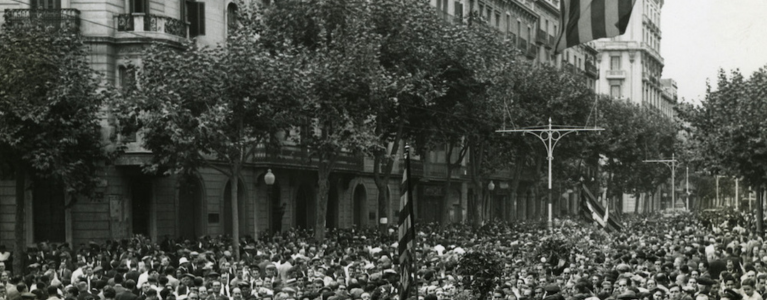
Working and collective roots to commemorate September 11 – Ateneu
In the frame of the National Day of Cataloniaa reminder of the search for sovereignty and cohesion, is also essential to recognize that the construction of a country is not only through conquests and classic institutional speeches, but also from the base, from cooperation and self -management. And in this sense, co -operativism has been a central actor in the formation of a collective and solidarity social model in Catalonia with deep and committed roots.
A collective story that starts from below
The first steps of cooperativism in Catalonia date back to the 19th century, in the midst of an industrial revolution and in the midst of a context marked by labor exploitation and agricultural crises. The emerging labor movement promoted initiatives to collect collective to an urgent need: to overcome precariousness through mutual support. Clear examples are the weavers in Barcelona in the 1840’s, which created protective structures and even a cooperative factory to generate shared employment.
That same century, the first modern cooperatives saw the light in Catalonia. In 1842 the factory company of weavers in Barcelona was launched, a proto-operative experience with dozens of organized workers. In the following years, several consumer cooperatives, such as the old Camp de l’Arpa, the Martinian and the Artisan Consumer of Poblenou, were born between 1868 and 1879.
These first cooperative expressions were not only economic structures: they were solidarity organizations, built by workers who shared values such as mutuality, self -management and internal democracy. It is in this context that cooperativism becomes a real alternative to the capitalist model, and a form of social and cultural activism of popular root.
Cooperativism and nation: a shared identity
The day invites us to reflect on what unites us as a people. Cooperativism gives a sober and experiential response to this question. It is a practice that claims a collective identity not based on uniformity, but on diversity and the shared generation of well -being. Cooperation, beyond symbols, builds effective communities, where the needy needs are recognized and taken care of in the territory.
That is why talking about Catalonia is also talking about these types of projects that were promoted by the popular classes to recover dignity, decent housing, fair wages and community social structure. In the dissemination of this legacy, cooperativism acts as a living reference for transversal Catalanity, linked to everyday life and collective decision -making spaces.
From history to the present: Cooperativism as a future
The cooperative movement in Catalonia has not remained only in history books. It has lasted in federations, adapted laws and a culture that is still renewed. The Law of Cooperatives of Catalonia of 1983, the first in Spain, is an example of how popular political memory and self -organization came together to build legal and institutional tools that recognized the structural nature of cooperativism.
Today, in a context of eco -social crisis and inequalities, cooperativism emerges as a path of transformation not only economic, but also political and cultural. Activate energy communities, shared homes, agroecological projects and shared care spaces throughout the Baix Llobregat and beyond.
Co -operatively rooted on September 11
This September 11, at the Ateneu Cooperativa del Baix Llobregat we claim that a powerful way of building a country is through solidarity, participatory organization and collective co -responsibility. Catalan cooperativism reminds us that sovereignty is not just political; It is also a daily practice of mutual care and mutual impulse.
Thus, the day is an invitation open to rethink collective sovereignty from below. Not only as a historical memory, but as a common, rooted project, which is moving towards regeneration and shared life.








